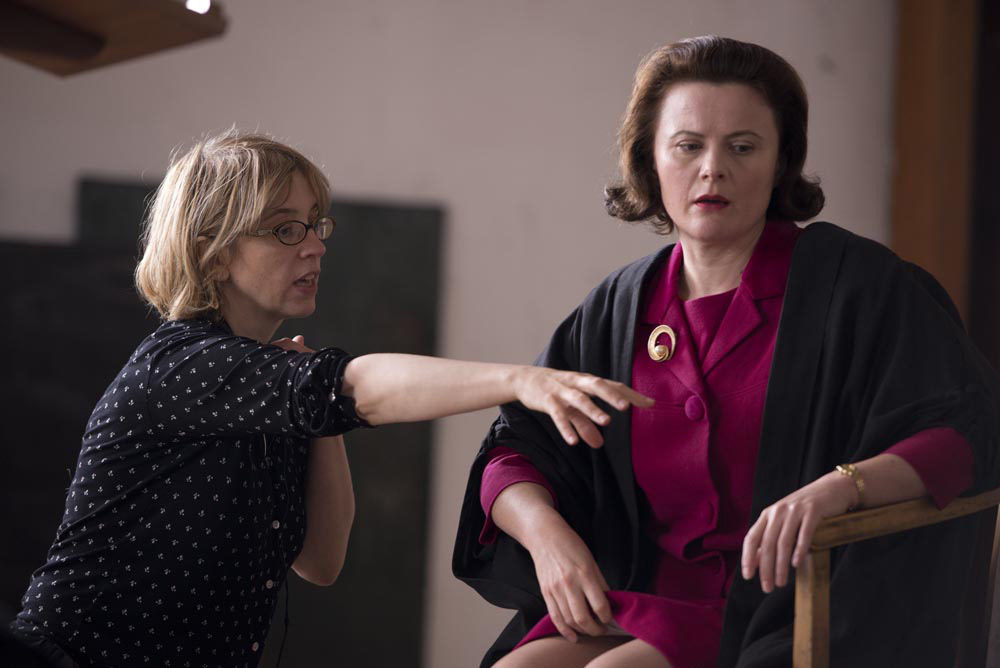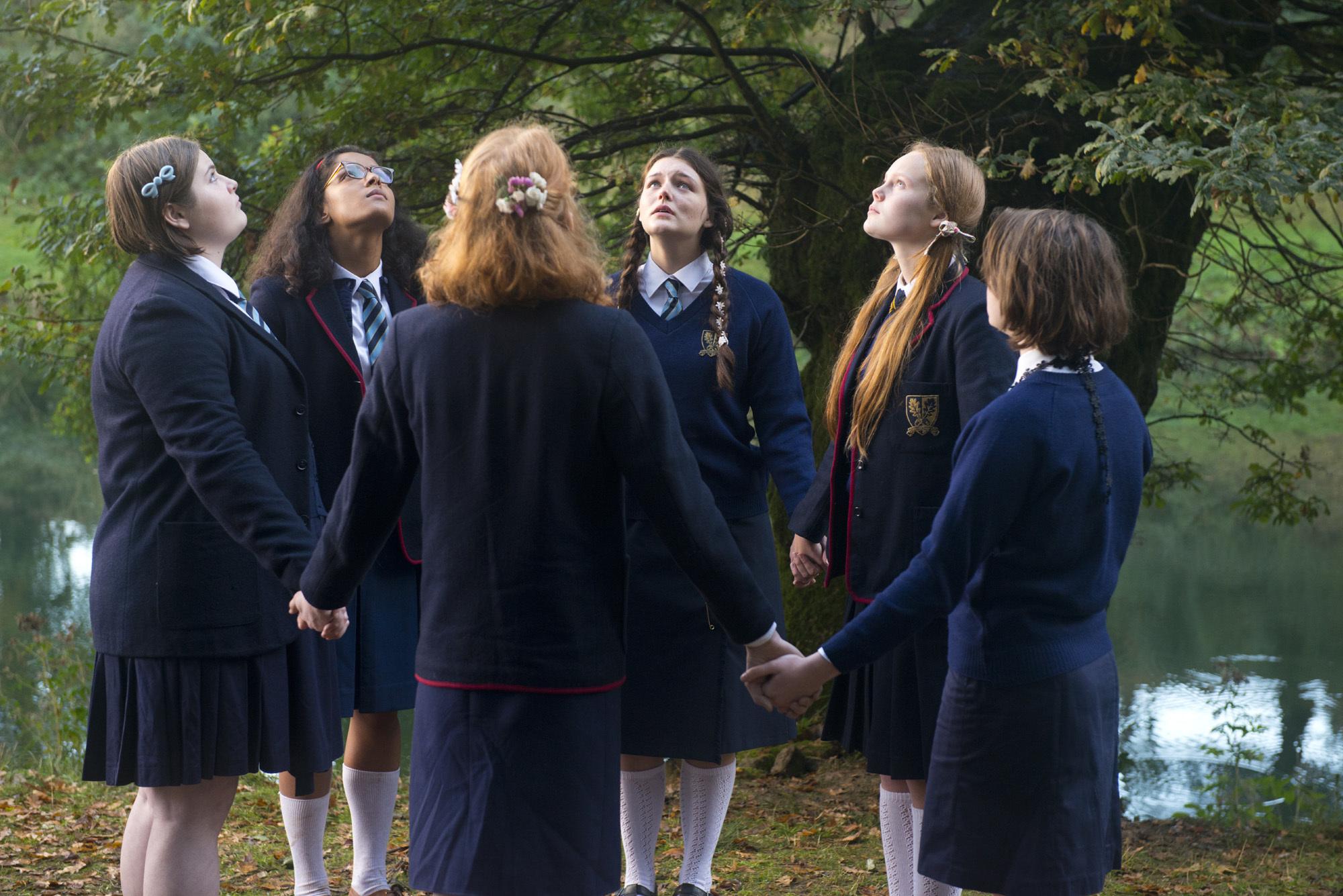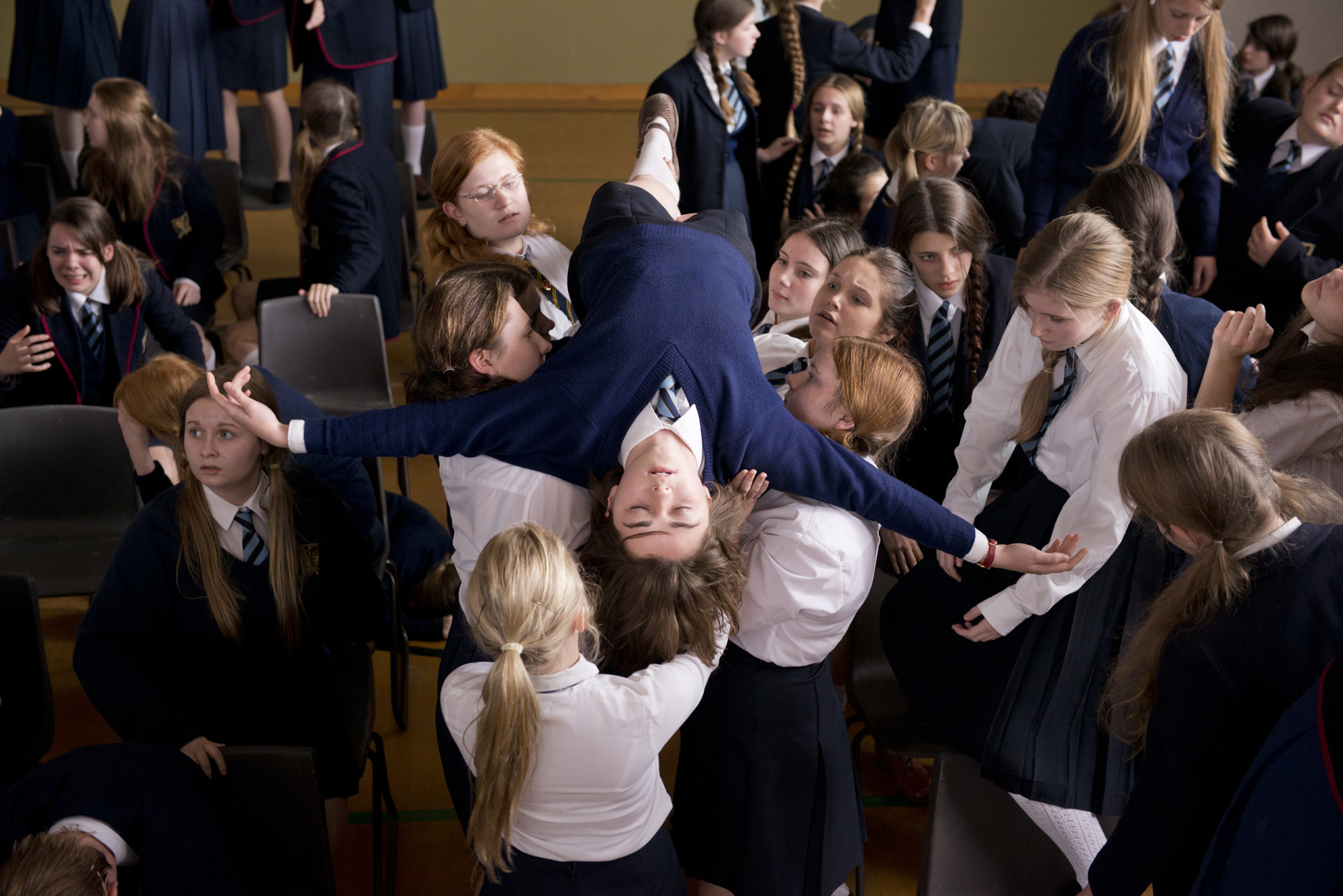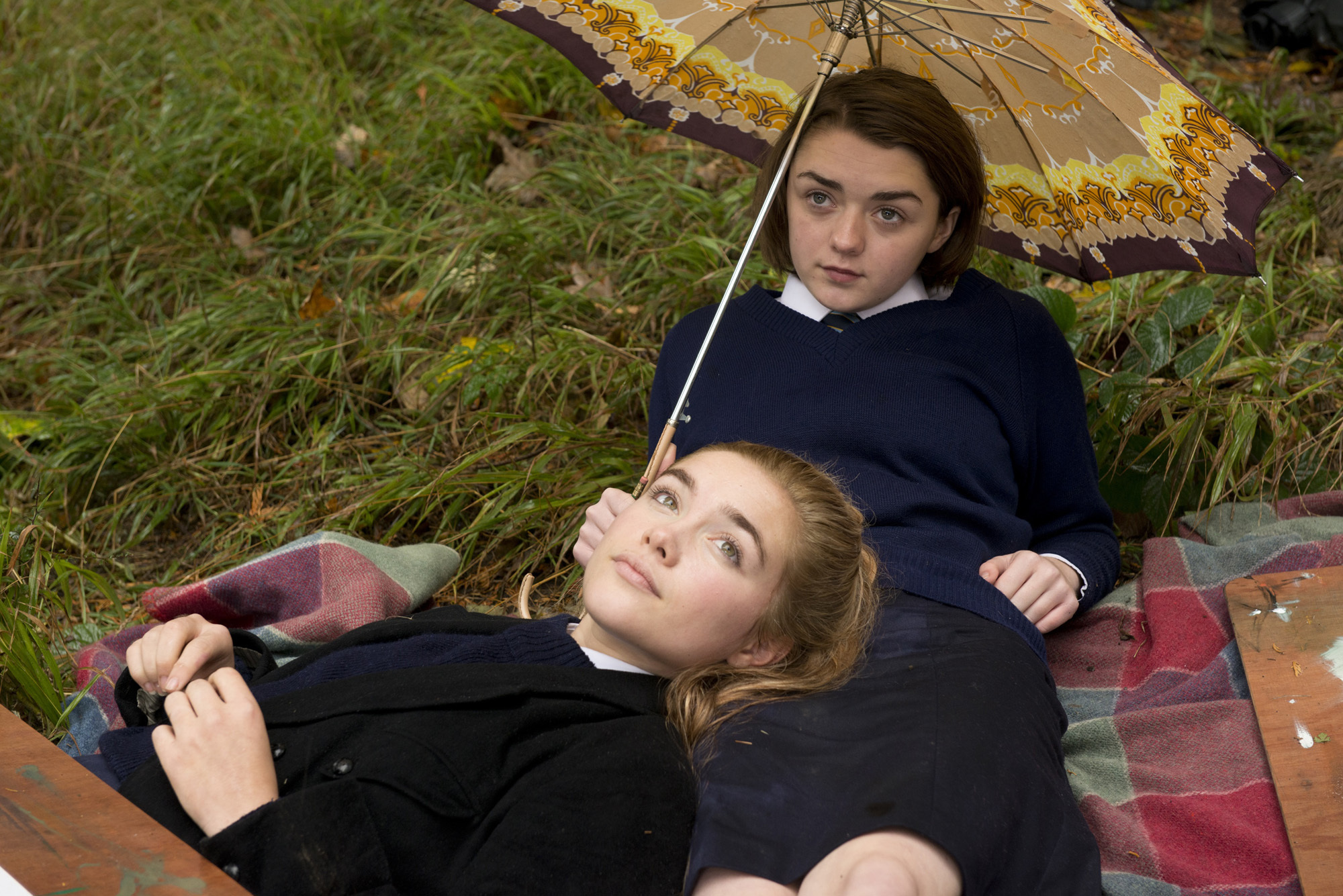Carol Morley has spent the last ten years researching fainting fits, laughing outbreaks, convulsive twitching and collective falling and chiefly among groups of teenage girls. She’s not been simply standing at the back of boyband concerts but investigating the phenomenon of mass psychogenic illness, or as it’s more commonly known, an outbreak of mass hysteria.
It’s led the director of the acclaimed semi documentary Dreams of a Life to her next, entirely fictitious film, The Falling. Set in a girls boarding school in 1969, the film centres on the intense teen friendship between Lydia [Game of Thrones’ Maisie Williams] and Abbie [newcomer Florence Pugh] whose world is torn apart when the latter discovers sex, a moment that sparks tumultuous change that culminates in uncontrollable fainting fits among the school’s boarders.
Extraordinarily eerie and beautifully shot, the film also benefits from a brilliant score from Tracey Thorn and strong support from Maxine Peake as Lydia’s equally weird, agoraphobic mother. Below, director and the film’s new star explain their roles in making it all happen.

Carol Morley
You spent 10 years researching mass psychogenic illness. What was the draw?
It was something strange and mysterious and wasn’t much talked about even though it’s much more common than people say.
You looked at a multitude of cases but was there one in particular that became key to the film?
The ones that happened in girls schools specifically; there was one in Blackburn in the 60s where girls began to faint and fall and some people put it down to a polio outbreak, others that there’d been a royal visitor. For me, it happens to adolescent girls a lot so I really felt it tied into a sexual awakening.
Why did you decide to set the film in 1969?
I saw it was a coming of age film and the coming of age of an era, a kind of political, sexual and philosophical awakening at that time. Not everyone was involved in the swinging sixties but as a teenager you’d be listening to the radio and watching TV and reading stuff and looking to get out of where you’re from as teenagers do.
It’s sex that comes between the two girls in the film, isn’t it?
Yeah, sex entering people’s lives from the outside can feel quite threatening and when you have a best friend relationship at that age you’re always scared it’s going to come to an end. You don’t want the other person to change. The girls always want it to be like this. When Abbie becomes sexual, it’s threatening to Lydia.

I talked to Florence about the scene where she had to put her finger in Maisie’s mouth. What was the inspiration for it?
At that age, you’re interested in discovering what the world is about and part of that is about exploring sexual boundaries. You don’t want it to be voyeuristic when you put that on screen, so that scene is something that happened to me. I went to my best friend’s house and her friend from next door, who was 15 and pregnant, came round. She made us close our eyes and slid her finger in and out of our mouths and said, ‘what does that make you think of?’ I remember the frisson of the time.
When the girls break out into hysterical fits they do so in a kind of sexualised swoon. Why did you decide to make it feel like that?
Mass psychogenic illnesses often represent the anxieties of their times. In the 1960s, there was a lot of anxiety about changing sexual ideas, how women could display and own their sexuality. I wanted the epidemic to get inside their heads, to have that kind of rapture.
How significant was it to be a strong female presence on set?
When you’re starting the film, everyone on set, from runner to director of photography, is being cast so they’re all working towards making this film in a particular way. The female element is important because it’s saying that on set, it doesn’t always have to be male, which it often can be. It was empowering for a lot of people that there were a lot of women around.

Florence Pugh
The key relationship is in the film is that between your character Abbie and Lydia, played by Maisie. What did you make of their friendship?
Abbie and Lydia are incredibly close and have an almost borderline relationship. The things that they do with each other, the way they hold each other – it’s a real thing that they’ve got. That’s what makes it more heartbreaking when Abbie decides to start sleeping with people. Lydia thinks it’s a betrayal.
You were a Game of Thrones fan before the film. How did you get on with Maisie?
I recognized her outside an audition room and I asked her what she was going for and she said this film called The Falling. So we worked out that we were both going for the best friends role. I had to go into the audition room to do a scene where I put my finger in Maisie’s character’s mouth. I told myself I needed to do anything to get the job so I did just that and when the scene was over, Carol and Maisie were like, ‘we didn’t think you were actually going to do it!’ It broke the ice straight away when I stuck my finger in Maisie’s mouth.

You’re also a singer songwriter. Has that fallen by the wayside now?
Being a singer songwriter will always be a part of what I do. I will always have my guitar with me. I’m flying around a lot now but I will never forget about it. It’s just difficult when you don’t have time to sit down to record but I hope to release something at some point.
Did you meet Tracey Thorn during filming?
I have been a massive fan of hers since I was about five but I didn’t actually meet her until the London Film Festival when I done a massive squeal at her. And she said, ‘you’re the one with the singing voice’. I had a proper moment – Tracey Thorn has listened to me sing!
The Falling is out Friday, April 24.
Credits
Text Colin Crummy
